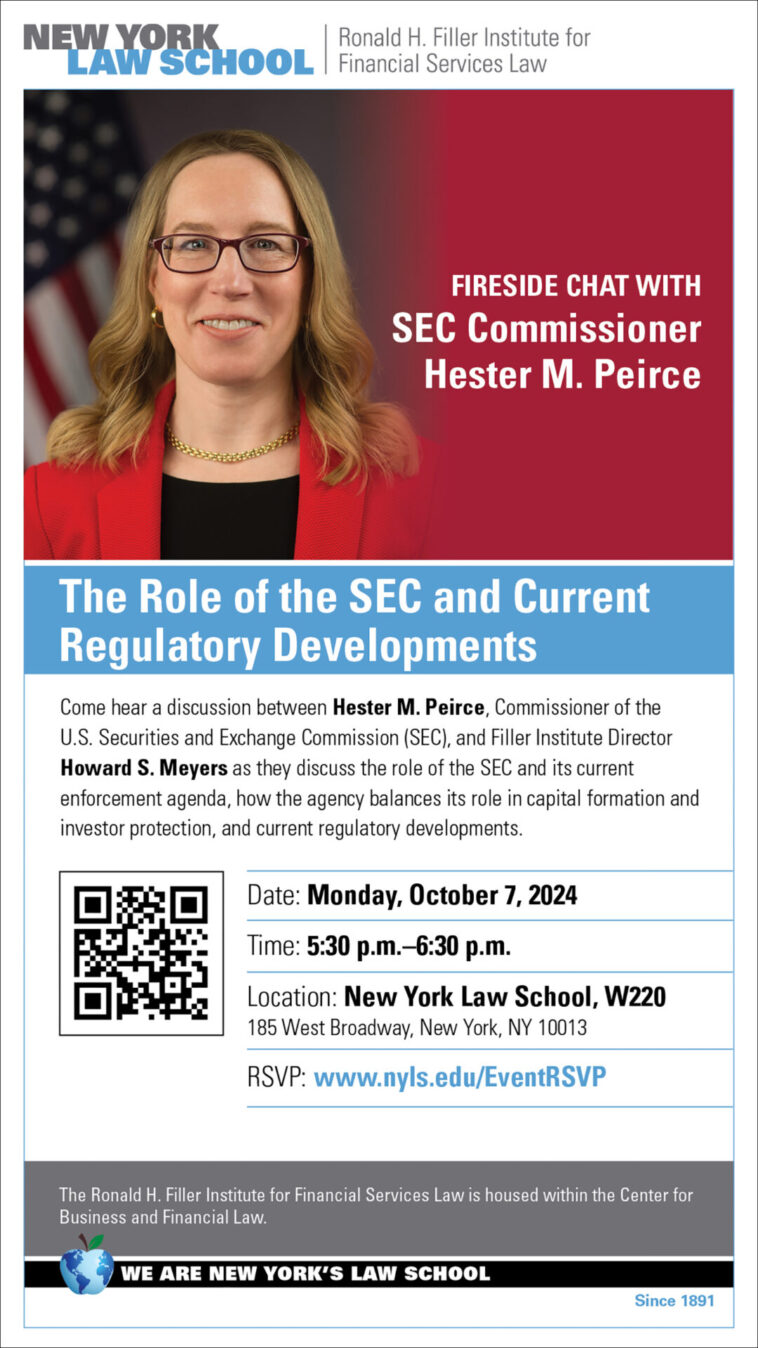The notion that tokenizing stocks implies deviation from federal securities laws was addressed by Hester M. Peirce this Wednesday. Peirce, an SEC commissioner, clarified that the creation of digital counterparts for stocks and other securities is not exempt from regulatory governance. She asserted emphatically, ‘Tokenized securities remain securities.’
The digitization of stocks and securities, known as ‘tokenization,’ has seen an uptick in recent times. Peirce took this opportunity to remind stakeholders that these digital elements, despite representing conventional securities in new forms, continue to exist within the framework of federal securities laws and regulations.
Peirce stated, ‘As market participants indulge in transactions involving these newly created instruments, they must not lose sight of their obligations to complying with federal securities laws.’ This statement, while not officially representing the SEC’s stance, carries significant import given Peirce’s designation as a commissioner and head of the SEC’s crypto task force.
Peirce’s voice resonates within the corridors of this regulation body, given her role and tenure. Her guidance is expected to shape the behavioral norms for those operating in the rapidly evolving domain of tokenized securities.
A tokenized stock essentially represents a security’s digital form, unchained from the confines of a specific stock exchange. It offers the liberty to be traded at any given time on a blockchain, straying from the conventional definition of trading dynamics.
Blockchains, the bedrock of these transactions, are essentially digital ledgers. Conceptually, they are designed to record all transactions involving cryptocurrencies or any other form of digital assets. These records are maintained on a distributed network of computers, rather than on a centralized system.
Peirce’s viewpoints have gained significance in recent times as various players within the crypto industry express their aims to incorporate digital versions of stocks and similar assets onto their platforms. Such developments are typically seen in both European and American firms within this space.
There exists a palpable concern among skeptics regarding the tokenization of assets. They fear that assets like shares in private companies, once digitized and traded on the blockchain, might circumvent the purview of federal securities laws.
These naysayers worry that this novel mechanism might allow such digital assets to skirt the established regulations that have governed securities for decades. They believe that this technological progression could perhaps, unintentionally enable a free pass around the legal frameworks.
Peirce, however, has a rich history of advocating for a progressive approach towards novel technologies. Her commission has recently convened a hearing focusing specifically on the topic of tokenization.
As a supporter of newer technologies, she encourages regulators to maintain an open perspective towards evolution within their field. But she is not ignorant to the responsibilities this brings along.
In the same address, she emphasized that while progress should not be hampered, companies operating in the crypto sphere must exercise due diligence towards securities laws. Thus, adhering to the established norms is equally, if not more, important as we advance.
While her arguments favor an open-minded approach to novel technologies, she does not lose sight of the fundamental obligations. She remains steadfast in her belief that despite the technological evolution of financial instruments, adherence to security laws should remain unmoved.

